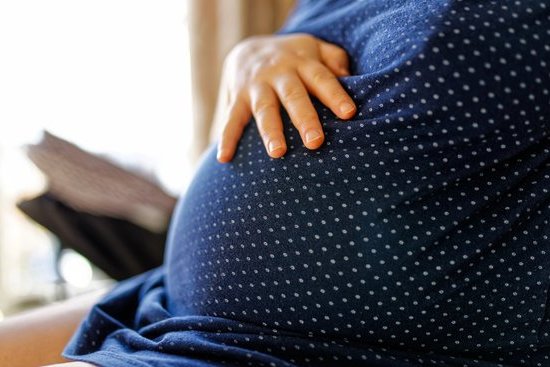How early can a blood test detect pregnancy? Many women may wonder about this as they wait anxiously for signs of conception. Understanding the early signs of pregnancy and the reliability of blood tests in detecting it is crucial for those trying to conceive or avoid an unexpected pregnancy. In this article, we will delve into the science behind early pregnancy detection through blood tests, as well as the factors that can affect their accuracy.
The early signs of pregnancy can vary from woman to woman, with some experiencing symptoms as early as a week after conception. While home pregnancy tests are typically used to confirm pregnancy, blood tests are considered to be more accurate and can detect pregnancy at an earlier stage. Understanding how these blood tests work and the hormones they detect is essential for those looking for reliable confirmation of pregnancy in its earliest stages.
Blood tests are able to detect hCG (human chorionic gonadotropin), a hormone produced by the placenta shortly after implantation occurs. The level of hCG in a woman’s blood increases rapidly during the early weeks of pregnancy, making it an effective marker for detecting conception.
With advancements in medical technology, blood tests are becoming increasingly sensitive and can provide reliable results within days of conception. In the following sections, we will explore the science behind blood tests for early pregnancy detection and compare their reliability to home pregnancy tests.
Understanding Blood Tests
Blood tests are commonly used to detect pregnancy and are often considered more accurate than home pregnancy tests. Understanding how blood tests work can provide valuable insight into the early detection of pregnancy.
How Do Blood Tests Detect Pregnancy?
Blood tests for pregnancy detect the presence of the hormone human chorionic gonadotropin (hCG) in the blood. This hormone is produced by the placenta shortly after a fertilized egg attaches to the uterine lining. There are two types of blood tests that can detect hCG: quantitative and qualitative. A quantitative test measures the exact amount of hCG in the blood, while a qualitative test simply detects its presence.
When Can Blood Tests Detect Pregnancy?
One of the advantages of using a blood test for pregnancy detection is that it can detect lower levels of hCG than urine tests, allowing for early detection. In fact, some blood tests can detect pregnancy as early as 7-12 days post-conception, which is typically several days before a missed period. This makes blood tests one of the earliest methods for detecting pregnancy.
Benefits of Early Detection With Blood Tests
Early detection through blood tests allows for timely prenatal care and can help expectant mothers make important lifestyle changes early in their pregnancies. Additionally, early detection can be particularly important for women undergoing fertility treatments or those with high-risk pregnancies. Understanding how early a blood test can detect pregnancy highlights its importance in providing accurate and timely information about pregnancy status.
The Science Behind Blood Tests
When it comes to detecting pregnancy, one of the most reliable methods is through a blood test. The science behind blood tests for early pregnancy detection lies in the detection of a hormone called human chorionic gonadotropin (hCG). This hormone is produced by the placenta shortly after a fertilized egg attaches to the uterine lining and its levels increase rapidly in the early stages of pregnancy.
How Early Can a Blood Test Detect Pregnancy?
A blood test can detect pregnancy as early as 6-8 days after ovulation. This is much earlier than home pregnancy tests, which typically can detect hCG levels around 12-14 days after ovulation. The ability of blood tests to detect pregnancy so early makes them an important tool for women who are trying to conceive or who may need to know about their pregnancy status for medical reasons.
The Science Behind Early Pregnancy Hormone Detection
- Hormone hCG: The presence of this hormone in the blood indicates that a fertilized egg has successfully implanted in the uterus.
- Rapid Increase: In the early stages of pregnancy, hCG levels double every 2-3 days, making it a reliable marker for detecting pregnancy.
- Specificity: Blood tests are able to quantify the level of hCG present, providing more accurate information about the stage of pregnancy compared to home urine tests.
Understanding how blood tests work and when they can detect pregnancy is essential for those who are eager to find out if they are expecting. The ability of these tests to detect hCG at such an early stage allows women and their healthcare providers to make informed decisions about prenatal care and potential risk factors related to early pregnancy.
How Accurate Are Blood Tests in Detecting Pregnancy Early?
A blood test is one of the most accurate methods to detect pregnancy early. It can detect pregnancy as early as 6-8 days after ovulation, which is typically around a week before a missed period. This is because a blood test measures the levels of human chorionic gonadotropin (hCG), a hormone produced during pregnancy, in the bloodstream. The hCG hormone is produced as soon as the fertilized egg implants in the uterus, making it an excellent indicator of pregnancy.
The accuracy of a blood test in detecting pregnancy early depends on various factors such as the sensitivity of the test, the timing of the test, and individual differences in hCG levels. High-sensitivity blood tests can detect even small amounts of hCG in the bloodstream, increasing their accuracy in early pregnancy detection.
However, timing is crucial when it comes to accuracy – taking a blood test too early can result in a false negative result, so it’s essential to schedule the test at the right time for accurate results.
It’s important to note that while blood tests are highly accurate in detecting early pregnancy, there is still a small margin for error. Factors such as medications and medical conditions can sometimes affect hCG levels and impact the accuracy of the test results. Therefore, it’s always best to consult with a healthcare professional to determine when to schedule a blood test for optimal accuracy in detecting early pregnancy.
Factors Affecting Early Detection
If you suspect that you may be pregnant and are considering a blood test for confirmation, timing is crucial. The question on many people’s minds is, “how early can a blood test detect pregnancy?” The answer lies in understanding the science behind blood tests and the hormone they measure to determine pregnancy.
A blood test can detect pregnancy as early as 6-8 days after ovulation, which is typically about a week before your period is due. This type of blood test measures the level of human chorionic gonadotropin (hCG) in your bloodstream. This hormone is produced by the placenta shortly after the embryo attaches to the uterine lining, and its levels double every 48 to 72 hours in the first few weeks of pregnancy.
The two types of blood tests that can detect hCG levels are quantitative beta hCG and qualitative beta hCG. The quantitative beta hCG test measures the exact amount of hCG in your blood, while the qualitative beta hCG test simply confirms whether or not hCG is present at all.
Because of their high sensitivity, both types of blood tests are able to detect pregnancy much earlier than home pregnancy tests. So, if you’re eager to find out if you’re pregnant well before your missed period, scheduling a blood test may be your best option for accurate results.
| Timing | Information |
|---|---|
| 6-8 days after ovulation | As early as when a blood test can detect pregnancy |
| Quantitative beta hCG | Measures exact amount of hCG in blood |
| Qualitative beta hCG | Determines presence of hCG in blood |
Comparing Blood Tests to Home Pregnancy Tests
When it comes to determining pregnancy, many women wonder which is more reliable: a blood test or a home pregnancy test. Both methods have their own advantages and limitations, so it’s important to understand the differences between them before making a decision.
Below is a comparison of blood tests and home pregnancy tests:
- Sensitivity: Blood tests are more sensitive than home pregnancy tests. They can detect lower levels of hCG (human chorionic gonadotropin), the hormone produced during pregnancy, earlier than home tests.
- Accuracy: Blood tests are considered highly accurate, with very minimal chances of a false result. Home pregnancy tests are also accurate if used properly, but factors such as timing and technique can affect their reliability.
- Timing: A blood test can detect hCG levels in the blood as early as 6-8 days after ovulation. Home pregnancy tests usually require higher hCG levels and may not be able to provide accurate results until after a missed period.
Considering these factors, it’s clear that while both blood tests and home pregnancy tests have their place in early detection of pregnancy, blood tests are generally more reliable when it comes to early detection.
It’s important to consult with a healthcare professional to determine the best course of action for confirming a potential pregnancy. They can provide guidance on when to schedule a blood test based on individual circumstances, such as menstrual cycle regularity and potential fertility issues. This will ensure that the most accurate results are obtained for early detection of pregnancy.
Discussing the Risks and Benefits of Early Pregnancy Blood Tests
When it comes to early pregnancy detection, many women turn to blood tests for a more accurate and reliable result. However, like any medical procedure, there are risks and benefits associated with early pregnancy blood tests that need to be considered.
Risks of Early Pregnancy Blood Tests
One of the main risks associated with early pregnancy blood tests is the potential for false positives or false negatives. While blood tests are generally more accurate than home pregnancy tests, there is still a small margin for error. This can lead to unnecessary stress and anxiety for women who may receive conflicting results from different tests.
Another risk to consider is the discomfort and potential complications that can arise from having blood drawn. Some women may experience bruising, swelling, or infection at the site of the blood draw, especially if they have sensitive veins or skin.
Benefits of Early Pregnancy Blood Tests
Despite the risks, early pregnancy blood tests offer several benefits that make them a popular choice for many women. One of the main advantages is their ability to detect hCG (human chorionic gonadotropin) hormone in the blood much earlier than urine-based home pregnancy tests. This means that women can receive a positive confirmation of pregnancy as early as 8-10 days after conception, allowing for prompt prenatal care and support.
Additionally, early pregnancy blood tests can provide a more precise measurement of hCG levels in the bloodstream, which can be useful for monitoring the progress of a pregnancy or detecting any potential complications.
As with any medical decision, it’s essential for women to weigh the potential risks and benefits of early pregnancy blood tests before scheduling one. Consulting with a healthcare provider can help individuals make an informed choice based on their unique circumstances and concerns.
Conclusion
In conclusion, understanding how early a blood test can detect pregnancy is crucial for women who are trying to conceive or suspect they may be pregnant. As discussed in this article, blood tests are capable of detecting the pregnancy hormone, hCG, as early as 7-12 days after conception. This makes them an extremely reliable method for early pregnancy detection, especially for women who may be experiencing ambiguous or inconclusive results with home pregnancy tests.
It is important to note that the accuracy of blood tests in detecting pregnancy early is very high, with some tests boasting a 99% accuracy rate. This makes them a valuable tool for women looking to confirm their pregnancy at the earliest stage possible. However, it is also essential to consider factors such as the timing of the test and any medications that could potentially interfere with the results.
Ultimately, when making decisions about early pregnancy detection and choosing between blood tests and home pregnancy tests, it’s crucial to weigh both the risks and benefits. While blood tests may offer earlier and more accurate results, they also come with certain risks such as potential discomfort or bruising from the blood draw. By being informed about all available options, women can confidently choose the method that best suits their needs and concerns when it comes to detecting pregnancy early.
Frequently Asked Questions
How Soon Will a Blood Pregnancy Test Read Positive?
A blood pregnancy test can typically read positive around 7-12 days after conception, which is earlier than a urine test. This is because the blood test can detect lower levels of hCG hormone.
Can a Blood Test Detect Pregnancy at 1 Week?
While it’s possible for a blood test to detect pregnancy at 1 week, it’s not very common. At this early stage, the hCG hormone levels may not be high enough to be reliably detected by a blood test.
Can a Blood Pregnancy Test Be Taken Too Early?
Yes, a blood pregnancy test can be taken too early. If it’s done before implantation has occurred, the test may come back negative even if the woman is pregnant. It’s best to wait until after a missed period for accurate results.

Welcome to my fertility blog. This is a space where I will be sharing my experiences as I navigate through the world of fertility treatments, as well as provide information and resources about fertility and pregnancy.





